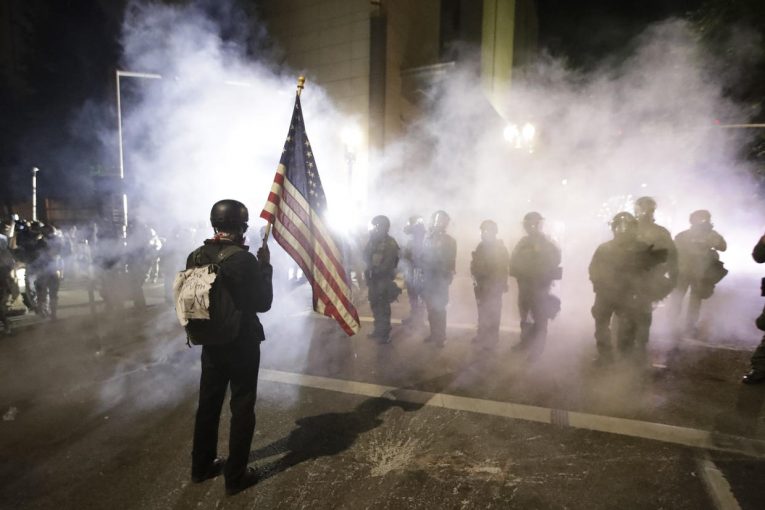

By Jacob Derin
Oakland and Portland’s legal dispute with the federal government over the use of federal agents reveals the dark side of the President’s “law and order” messaging.
The specific legal question of whether or not the federal government has the power to use its law enforcement entities to intervene against the wishes of state and local governments is not the most important one raised by the case. The most important issue is the broader pattern of authoritarian and anti-democratic sentiments expressed by President Donald Trump.
This case will settle whether or not the federal government is legally prohibited from engaging in such actions, but it will not address an even more important issue: Why was this done in the first place?
Given everything that we know about the President and how he thinks, do you really believe that he sent federal agents to these cities to help overburdened local police departments or even to defend federal property? He did it for the same reason he does practically everything else: to project an image of strength and to suppress political  dissent.
dissent.
He has a long history of fondness for authoritarianism. One of the most egregious examples of this behavior was his statement about North Korea’s leader Kim Jong-un, “He speaks and his people sit up at attention. I want my people to do the same.”
Trump may not know that the Democratic People’s Republic of Korea currently holds tens or hundreds of thousands of political prisoners in appalling labor camps; a United Nations panel has compared these camps to Nazi atrocities during the Second World War. But, I doubt that knowledge would have dissuaded him from saying this appalling statement.
Trump has offered public praise of Vladimir Putin even as he faced a federal investigation over his campaign’s ties to the Russian government. Despite the general tenor of the news media’s reporting on the Mueller Report, these ties very much existed. Mueller did not find sufficient evidence to charge the campaign or anyone in it with being part of a criminal conspiracy, but that is a very high bar to clear, and falling short of it is not the same thing as remaining totally blameless.
But enough about what looks to me like the campaign’s borderline treasonous behavior, we’re talking about Trump’s love of authoritarianism.
During the midst of a pandemic, which is currently claiming hundreds of thousands of American lives, the federal government, at the direction of the President, has shown itself committed to investing a great deal of resources into making a very public show of attempting to quell protests.
Trump was so committed, in fact, that he had police use tear gas to force protestors to leave, so he could be photographed holding a bible at St. John’s. Just before this, he delivered a speech in which he threatened to use the United States military to suppress protests across the country, the very idea of which made many current and former military officers deeply uncomfortable, and for good reason.
Under very limited conditions, the military can and has been used to augment local law enforcement efforts, but it is a measure of desperation taken at great risk to American democracy. The separation between military and police forces is almost as fundamental to the American political system as the separation between Church and State.
The military exists to protect the country from foreign threats, whereas the police force exists to safeguard the safety and rights of the people. To remove that distinction is to identify Americans exercising their right to protest as threats to the very democratic system in which they are participating.
This is the real danger posed by the administration’s actions in Oakland and Portland, and whatever the court decides, a line has already been crossed.
Support our work – to become a sustaining at $5 – $10- $25 per month hit the link:
